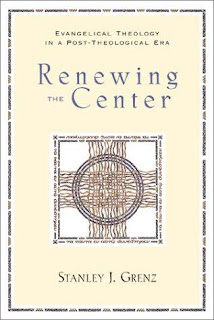 Ned Stonehouse (1902 - 1962) was one of the foremost New Testament scholars of his day. Stonehouse was an associate of J. Gresham Machen and succeeded Machen as Professor of New Testament at Westminster Theological Seminary Philadelphia. Stonehouse's area of special interest was the Synoptic gospels, and among his books on the subject is Origins of the Synoptic Gospels published in 1963. I suppose some of this material has been overtaken by subsequent developments, but this is a solid treatment of questions that continue to come up in debates over the reliability of the gospels -- you know, the kind of thing you're likely to hear from NT debunkers like Bart Ehrman and Bill Maher.
Ned Stonehouse (1902 - 1962) was one of the foremost New Testament scholars of his day. Stonehouse was an associate of J. Gresham Machen and succeeded Machen as Professor of New Testament at Westminster Theological Seminary Philadelphia. Stonehouse's area of special interest was the Synoptic gospels, and among his books on the subject is Origins of the Synoptic Gospels published in 1963. I suppose some of this material has been overtaken by subsequent developments, but this is a solid treatment of questions that continue to come up in debates over the reliability of the gospels -- you know, the kind of thing you're likely to hear from NT debunkers like Bart Ehrman and Bill Maher.
Matthew, Mark and Luke present us with some challenging problems, not least in the area of harmonization. Details differ in the reporting of events in Jesus' life, and perhaps more challenging are the divergences in Jesus' words as reported by the evangelists. Stonehouse tackles this head on using the story of The Rich Young Ruler as an example (see Matthew 19:16-30, Mark 10:17-31 and Luke 18:18-30). The basic outline of the story and the fundamental thrust of Jesus' teaching are the same, but there are some key differences as well. Matthew (assuming Mark came first and that Matthew relied on the Marcan text) changes Jesus' reply to the young man from "Why do you call me good?" to "Why do you ask me about what is good?" Also, Matthew changes by addition and subtraction Mark's account of Jesus' response to Peter's statement ("See, we have left everything and followed you.") in such a way to put the stress on the eschatological rewards for those who leave all to follow him.
There are two ways scholars have approached the differences in the gospel accounts. Those who want to defend the canonical gospels often flatten out the differences by minimizing them or insisting the writers must be reporting different events or different sayings. In the opposite camp are those like Ehrman who see discrepancies everywhere and use them as evidence that the gospels can't be trusted. Here Stonehouse describes how Christians can defend the trustworthiness of the gospels without obliterating the human factor.
There is, in my judgment, a sounder attitude to most problems of harmonization than that which was characterized above as conservative and simple. It is marked by the exercise of greater care in determining what the Gospels as a whole and in detail actually say as well as greater restraint in arriving at conclusions where the available evidence does not justify ready answers. In particular, there is the possibility of genuine progress if one does not maintain that the trustworthiness of the Gospels allows the evangelists no liberty of composition whatsoever, and does not insist that in reporting the words of Jesus, for example, they must have been characterized by a kind of notarial exactitude or what Professor John Murray has called "pedantic precision." Inasmuch as this point seems constantly to be overlooked or disregarded in the modern situation it may be well to stress again that orthodox expositors and defenders of the infallibility of Scripture have consistently made the point that infallibility is not properly understood if it is supposed that it carries with it the implication that the words of Jesus as reported in the Gospels are necessarily the ipsissima verba ["the very words"]. What is involved rather is that the Holy Spirit guided the human authors in such a way as to insure that their records give an accurate and trustworthy impression of the Lord's teachings.
Quote from pp. 109-110 of Origins of the Synoptic Gospels [bold emphasis mine]




